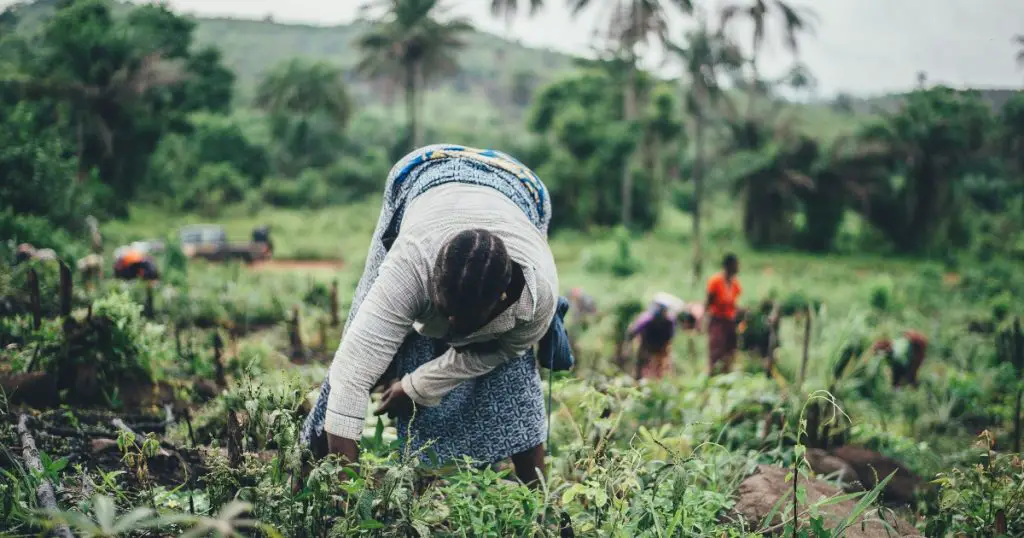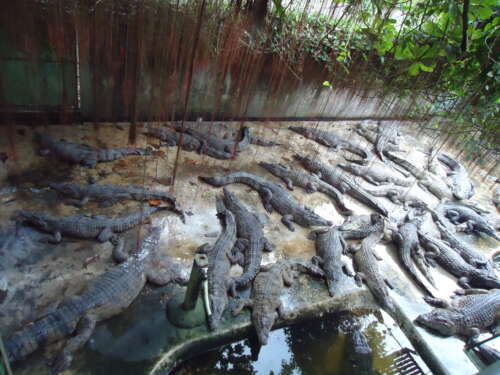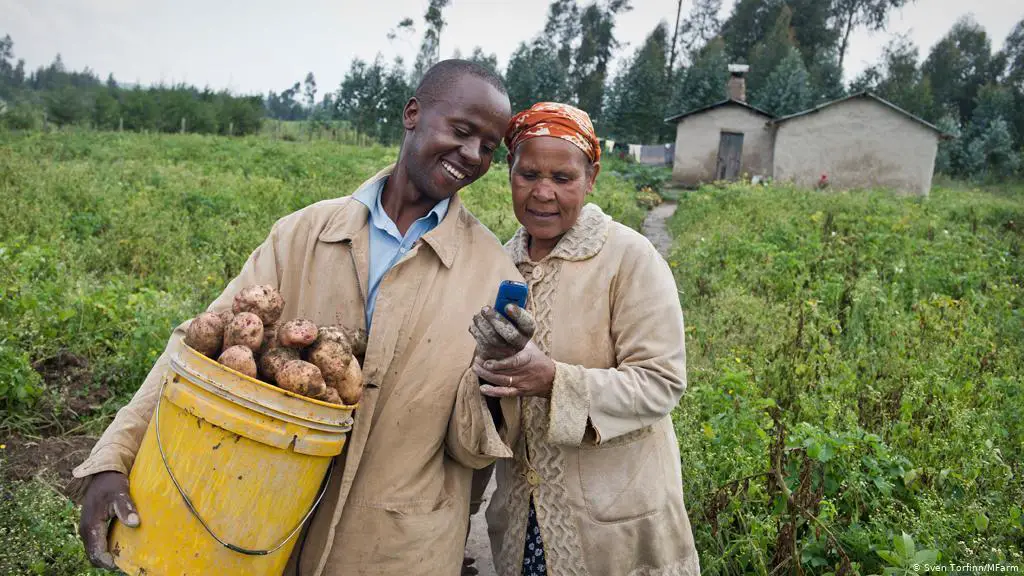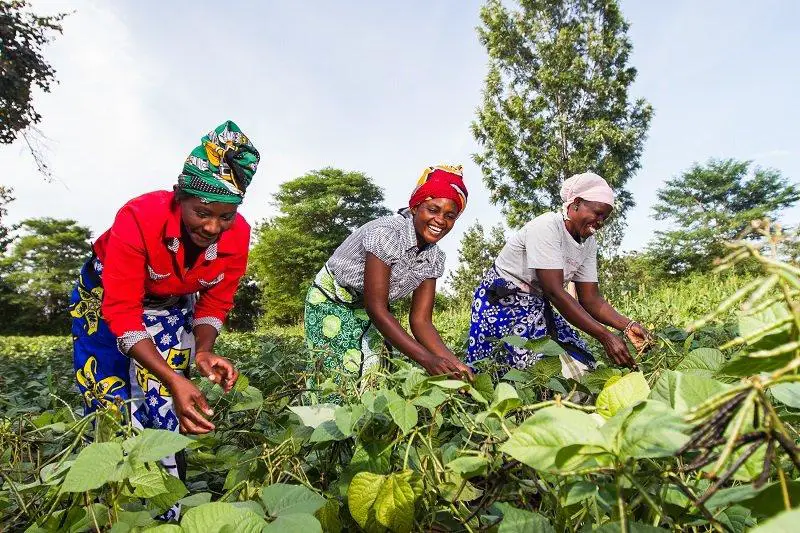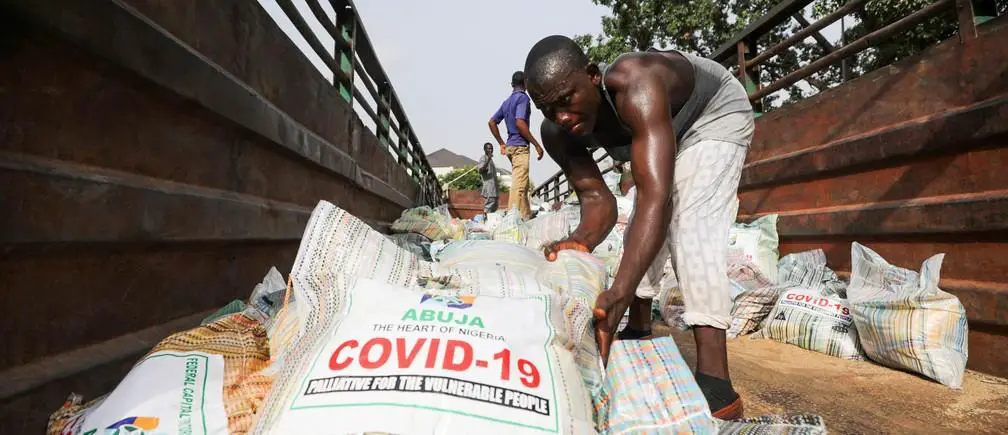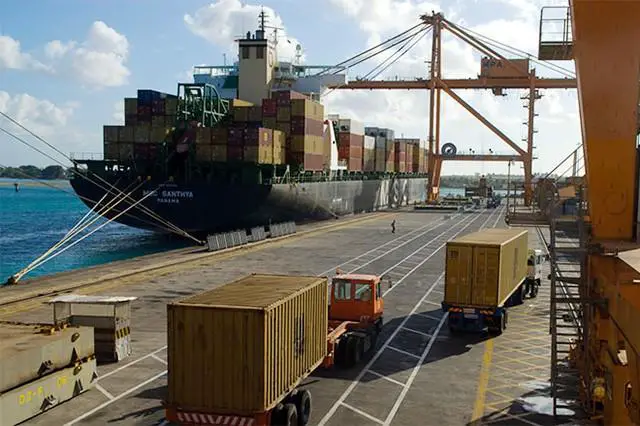- How transition finance can catalyse Africa’s green industrial revolution
- Stanbic PMI Report: Mixed performance as Kenya’s agriculture, construction offset manufacturing decline
- Uganda’s land management gets a tech makeover to boost transparency
- Nigeria’s output dips fastest in 19 months on a sharp rise in costs
- Apple faces growing backlash over Congo exploitation
- Why East Africa is staring at higher wheat prices in 2025
- Nairobi Gate SEZ pumps $7 million into Kenya’s agro-processing industry
- What impact will the US election have on Africa?
Browsing: Agriculture in Africa
- Industry experts now say that the lack of youth involvement in Agriculture is inhibiting the sector’s growth
- Farmer on Fire Founder Wangari Kuria said that young people in Sub-Saharan Africa often view agriculture as inefficient and uninteresting
- Kuria said the issue has led to a situation where the average age of Africa’s farmers is 60 while the median age of the population is 19
An industry expert has said that the lack of youth involvement in Agriculture is inhibiting the sector’s growth.
Farmer on Fire Founder and Chief Executive Officer Wangari Kuria said that young people in Sub-Saharan Africa often view agriculture as inefficient and uninteresting.
Kuria said the issue has led to a situation where the average age of Africa’s farmers is 60 while the median age of the population is 19.
“Young people aspire to formal sector employment and modern urban lifestyles. They do not consider agriculture as …
- Ministers of Agriculture from Africa and the Americas committed to working together to develop a cooperation agenda
- The ministers also agreed that the two continents face common challenges and opportunities regarding transforming their agri-food systems to make them more sustainable and inclusive
- Other topics of common interest that emerged from the debate were the recovery of degraded soils, efficient water management, and the promotion of more open, fairer, and more transparent international food trade
Africa and America agriculture ministers meet
Ministers of Agriculture from Africa and America meet and committed to working together to develop a cooperation agenda and agreed that the two continents face common challenges and opportunities regarding transforming their agri-food systems to make them more sustainable and inclusive.
The agreement was reached during the First High-Level Roundtable between Africa and the Americas, convened and organised by the Alliance for a Green Revolution in Africa (AGRA) and the …
SMEs are the major contributor to investments in the agricultural sector in Africa. In most cases, most African enterprises are run as opportunistic arbitrage entities keen on profiting from demand/ supply disparities because of a lack of substantial capital.
Investment into value addition business is limited in this sector due to challenges arising from lack of finance, poor access to markets, and lack of supporting policies. The continent’s main formal economic activity is agriculture, contributing 80% to the region’s employment.
Snapshot of the industry
Crocodile farming is an agricultural niche that holds vast potential for profit-making and value addition for SMEs. The risk of failure in this market segment is relatively low because of farming support systems and a readily available high-demand market.
The sector generates hundreds of millions in exports through the global demand for crocodile skins.
Other uses and income-generating avenues from this farming venture include …
Africa’s vast lands have for a long time not been exploited for agricultural production. In fact, 61% of the world's unused arable land is found in Africa. Little effort is being made to exploit this vast resource to feed the continent. On the flip side, the Food and Agriculture Organization says 239 million people in the region were undernourished as of 2018.
Since long before the COVID-19 pandemic, these chronic food crises have been driven by a variety of factors, including economic shocks, climate, and conflict, according to Brookings Institute. …
[elementor-template id="94265"]
It is unfair to mention African development pillars without mentioning the agriculture sector which employs nearly half of the population of sub-Saharan Africa (SSA).
The sector has enormous benefits to the continent, where farmer-centred organizations such as AGRA (Alliance for a Green Revolution in Africa) argue that nearly one-half of the young population is involved in the continent’s 60 million farms.
It is with no doubt that African farms stand to be the next profitable food market suppliers of the world.
“Out of total urban food sales of roughly US$200 to US$250 billion per year, over 80 per centcomes from domestic African suppliers,” according to AGRA.
Nearly 23 per cent of SSA’s GDP comes from agriculture (McKinsey, 2019); the sector is responsible for providing decent income, growth and poverty reduction for SSA.
The region’s food market was valued at $300 billion in 2017 and it could be
Standard Bank and UN Women have come together to equip African women in agriculture with skills and resources to grow their businesses for long term success.
In October last year, the two organisations partnered to empower more than 50,000 women in South Africa, Uganda, Malawi and Nigeria through modern and environmental friendly farming technologies that increase incomes and productivity.
Local farmer organisations and cooperatives, women farmers and authorities are now able to address structural inequalities in rural economies in Africa, beginning with difficulties that women face in securing tenure for quality farmland through the Climate Smart Agriculture (CSA) collaboration.
Funding worth $3 million has been provided by Standard Bank as well as ongoing support through financial literacy and other programmes.
“The CSA project supports Standard Bank’s drive to create a gender-equal Africa and aligns with our purpose of driving the continent’s growth. We believe it will meaningfully contribute to the …
The African Export-Import Bank (Afreximbank) approved a $400-million revolving global credit facility agreement for the Export Trading Group (ETG).
Export Trading Group (ETG) is among the largest and fastest-growing integrated agricultural conglomerates in Africa.
The funds will address key challenges faced by African agricultural exporters, aggregating large values of produce in order to enable small and medium-scale enterprises(SMEs) access to regional and international markets.
The agreement will not only allow ETG to keep playing its vital role in the agri-foods supply chain of efficiently connecting African farmers to markets but also expand access to key inputs to boost agricultural productivity in a continent with tremendous but yet unrealized potential.
Africa spent over $90 billion on food imports in 2019 despite possessing up to 60 per cent of the world’s remaining arable land according to Afreximbank.
According to the Food and Agriculture Organization (FAO), Africa’s agricultural production of up to 50 …
Africa, the continent of more than 1.3 billion people has experienced its share of the coronavirus (COVID-19), which shaved off crucial portions of the continent’s economy (tourism, trade and travel) leading to funding holes, debt burden and propelling unemployment and inequalities.
There are several projections laid out benching on Africa’s economic trend. According to UN estimates, African countries have so far lost an estimated US$29 billion due to the pandemic.
Meanwhile the United Nations Economic Commission for Africa (ECA) pinned its forecast noting the virus will shave 1.4 per cent off Africa’s $2.1 trillion GDP, hurting the continent’s business landscape.
Despite the pandemic eviscerating this year’s plans of enhancing tourism and travel horizons for East Africa’s hotbed Tanzania and Kenya, the African Development Bank (AfDB) finds the region undeterred in the face of the pandemic , as it becomes
Africa is great and has the potential to be greater—economically. The youngest continent in the world stands to garner billions in the trade as its youngest generation present a potential to transform, the continent’s economic pillars, from agriculture to investment.
The region has more than 1.3 people and nearly 60 per cent of its population is under 25 years, according to United Nations Data for World Population Prospects 2017. This means that Africa can fetch healthy intra-regional and international trade growth if it utilizes its existing potentials.
As the African Continental Free Trade Area (AfCFTA) is around the corner to be domesticated (postponed due to virus outbreak), the trade pact could ignite Africa’s industrialization and boost income generation.
The trade pact connects more than 1.3 billion Africans in 55 countries with a combined gross domestic product of nearly $ 3.4 trillion while lifting more than 30 million people from extreme …
The International Islamic Trade Finance Corporation (ITFC) signed a $200 million syndicated Murabaha financing agreement with the African Export-Import Bank (Afreximbank) to help the agricultural sector in Africa.
The International Islamic Trade Finance Corporation is a member of the Islamic Development Bank (IsDB) Group while Afreximbank is a multilateral financial institution established by African governments and institutional investors.
The facility aims at helping African countries address some of the economic impacts of the pandemic. This syndication is supported by financial institutions and some of the partners who allocated resources to the agricultural sector in Africa.
The agreement which is in line with ITFC’s ongoing commitment in Africa will fund the export of soft commodities such as cocoa, sesame seeds, raw cashew nuts and maize.
Also Read: Kenya to launch Agribusiness programmes to support youth involvement in agriculture
Agriculture being Africa’s continent largest employer and a key driver of SME development, …





